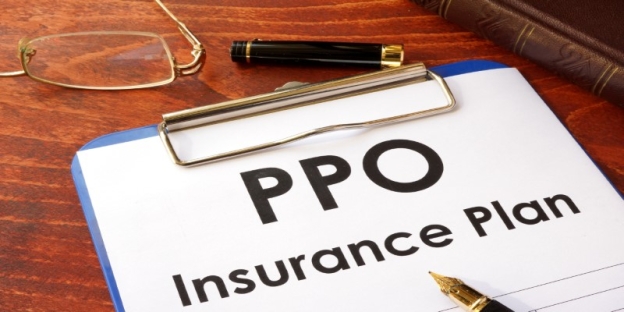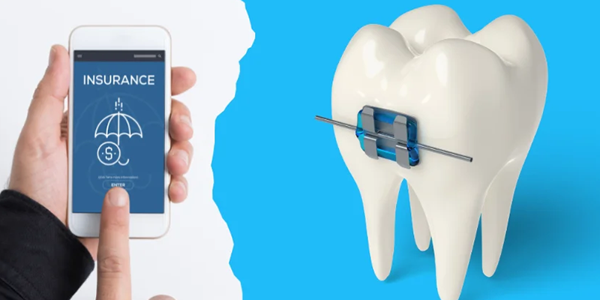How To Use Dental Insurance With Out-Of-Network Dentists
You found the perfect dentist—close to home, with great reviews, and who makes you feel at ease. But there's just one catch: they’re out-of-network. Now what?
Can you still use your dental insurance? Will you have to pay everything out of pocket? And what exactly does "out-of-network" mean anyway? Let’s break down exactly how dental insurance works with out-of-network providers and what you can do to save money while still getting the care you want.
What Does “Out-Of-Network” Really Mean?
Dental insurance providers usually have a list of dentists they consider “in-network.” These are providers who have signed agreements with the insurance company to charge pre-negotiated rates for services. If your dentist hasn’t signed that contract, they’re considered out-of-network.
Key point: Out-of-network doesn't mean you can't use your insurance. It simply means that the process—and your out-of-pocket costs—may be different.
Can You Still Use Insurance With An Out-of-Network Dentist?
Yes, you can—in most cases. It all depends on the type of dental plan you have.
PPO Plans (Preferred Provider Organisation)
This is the most flexible type of dental insurance. PPO plans typically allow you to see any licensed dentist, whether they’re in-network or not.

The catch? You'll likely pay more when visiting an out-of-network provider. Still, your insurance may cover a portion of the costs. For example, your plan might cover 80% of preventive services at in-network dentists, but only 60% of these services at out-of-network dentists.
DHMO Plans (Dental Health Maintenance Organisation)
These are more restrictive. If you're on a DHMO plan, you typically must use in-network providers to receive coverage. Out-of-network services may not be covered.
So, if you have a PPO plan, you have options. With a DHMO? You'll need to double-check before booking that appointment.
What To Ask Your Insurance Provider
Before scheduling a visit with an out-of-network dentist, take a few minutes to talk to your insurance provider or check your online benefits portal. Ask these questions:
- Do I have out-of-network coverage?
- What percentage of services are covered outside the network?
- Do I need to meet a separate deductible for out-of-network services?
- Is there a higher annual maximum for in-network vs. out-of-network care?
- Will the dentist need to submit the claim, or do I do it myself?
Knowing these answers in advance helps you avoid surprise bills later.
Understanding Reimbursement And Balance Billing
Here's how things typically work with out-of-network dentists:
- You get the dental work done.
- The dentist charges their standard fee.
- You or the dental office submits the claim to your insurance provider.
- Your insurance reimburses a percentage based on "UCR" rates.
Wait—what are UCR rates?
UCR stands for Usual, Customary, and Reasonable. Insurance companies use these amounts to determine how much they’ll pay for a particular service in a specific geographic area. If your dentist charges more than that, you’ll likely pay the difference.
This is called balance billing, and it's something you should be prepared for. That's why obtaining a cost estimate upfront is so important.
How To Minimise Out-of-Pocket Costs
Even if your favourite dentist is out-of-network, you can still take steps to lower your dental costs. Here's how:
Request A Pre-Treatment Estimate
Ask your dentist for a breakdown of expected services and fees. Then, submit this to your insurance provider to see how much will be reimbursed. This avoids surprises later.

Use Your Annual Maximum Wisely
Most dental plans cap benefits at around $1,000 to $2,000 per year. Plan your treatments across multiple calendar years. For example, start a crown in December and finish it in January.
Look Into Direct Reimbursement Plans
Some employers offer reimbursement-style dental benefits. You pay the dentist directly and get reimbursed later, regardless of network status. If your company has this, it could work in your favour.
Submit Claims Yourself (If Needed)
Many out-of-network dentists won't handle insurance paperwork for you. But don't worry—it's usually simple. Complete a claim form, attach your receipt, and submit it to your insurance provider.
Check For In-Network Labs
Some out-of-network dentists utilise in-network labs for procedures such as crowns or dentures. This can lower the total cost even if the provider isn't in-network.
When It Makes Sense To Stick With An Out-of-Network Dentist
You might wonder: Is it ever worth paying more to stay with an out-of-network provider?
Here are a few times when it might be:
- You’ve built a strong relationship with your dentist and trust their care.
- They offer specialised services that are not readily available elsewhere.
- They have a reputation for excellence in patient-centred care.
- You’re receiving complex or ongoing treatments and want consistency.
Health isn't just about costs—it's also about quality and comfort. If you’ve found a dentist who fits those criteria, the higher out-of-pocket expenses might be worth it.
How To Switch Back To In-Network (If You Choose To)
If you decide the added expense just isn’t worth it, you can always switch to an in-network provider. Here’s how to make the transition smoother:
- Use your insurance provider’s online tool to search for in-network dentists.
- Read reviews and call ahead to ask about availability.
- Transfer your dental records to the new provider so they have your complete medical history.
- Schedule a consultation before committing to major procedures.
Making the switch doesn’t have to be stressful, and you might find another dentist you like just as much, without the extra costs.
Don’t Let Insurance Limit Your Dental Choices
Using your dental insurance with out-of-network dentists isn’t impossible—it just takes a bit more planning. Whether you stick with your trusted dentist or explore in-network options, the key is knowing how your insurance works and what your financial responsibility will be.
By asking the right questions, obtaining cost estimates upfront, and understanding how reimbursement works, you can make informed, confident choices for your dental care without being tied down by networks.







